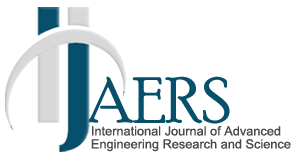Performance Analysis of Genetic Algorithm with PSO for Data Clustering |
| ( Vol-3,Issue-11,November 2016 ) OPEN ACCESS |
| Author(s): |
G.Malini Devi, M.Lakshmi Prasanna, Dr.M.Seetha |
| Keywords: |
|
Clustering, GA-PSO, Genetic Algorithm, Particle Swarm Optimization. |
| Abstract: |
|
Data clustering is widely used in several areas like machine learning, data mining, pattern recognition, image processing and bioinformatics. Clustering is the process of partitioning or grouping of a given set of data into disjoint cluster. Basically there are two types of clustering approaches, one is hierarchical and the other is partitioned. K-means clustering is one of the partitioned types and it suffers from the fact that that it may not be easy to clearly identify the initial K elements. To overcome the problems in K-means Genetic Algorithm (GA) and Particle Swarm Optimization (PSO) techniques came into existence. A Genetic Algorithm (GA) is one of hierarchical approach and can be noted as an optimization technique whose algorithm is based on the mechanics of natural selection and genetics. Particle Swarm Optimization (PSO) is also one of the hierarchical search methods whose mechanics are inspired by the swarming. The PSO algorithm is simple and can be developed in a few lines of code whereas GAs suffers from identifying a current solution but good at reaching a global region. Even though GA and PSO have their own set of strengths they have weaknesses too. So a hybrid approach (GA-PSO) which combines the advantages of GA and PSO are proposed to get a better performance. The hybrid method merges the standard velocity and modernizes rules of PSOs with the thoughts of selection, crossover and mutation from GAs. A comparative study is carried out by analyzing the results like fitness value and elapsed time of GA-PSO to the standard GA and PSO. |
|
|
| Paper Statistics: |
| Cite this Article: |
| Click here to get all Styles of Citation using DOI of the article. |
- Track Your Paper
- editor.ijaers@gmail.com
- ISSN : 2349-6495(P) | 2456-1908(O)



Advanced Engineering Research and Science